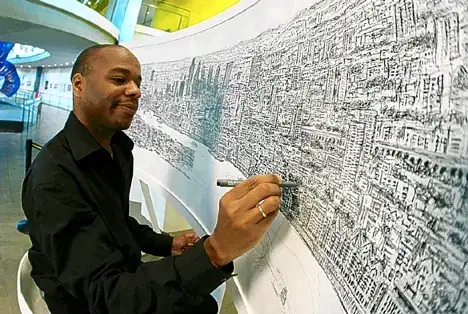I've been told that because I can remember shapes and objects well, and describe them in detail, I have a "photographic memory". However, I looked it up (briefly), and it seems scientific consensus is that there is no such thing - everyone can really do it. So, what is the consensus? Does it exist? Does everyone have it, or only certain people?
-
1Could you define what you mean with the term photographic memory? What task are we talking about? Remembering a picture after looking at it for 10 seconds, 1 minute or 1 hours? – Christian Apr 08 '11 at 19:34
-
2I think you're referring to "eidetic memory" http://en.wikipedia.org/wiki/Eidetic_memory – morganpdx Apr 08 '11 at 19:39
2 Answers
Scientific American article (by Alan Searleman, Professor of Psychology, St. Lawrence University)
In the scientific literature, the term eidetic imagery comes closest to what is popularly called photographic memory.
... a common visual image that we can all create from memory (such as an image of a bedroom) does not have the characteristics of most eidetic images, which almost always fade away involuntarily and part by part.
Unlike common visual images created from memory, most eidetic images last between about half a minute to several minutes only, and [...] once gone from view, rarely can an eidetic image ever be retrieved.
... besides often being sketchy on some details, it is not unusual for eidetikers to alter visual details and even to invent some that were never in the original. This suggests that eidetic images are certainly not photographic in nature but instead are reconstructed from memory and can be influenced like other memories (both visual and nonvisual) by cognitive biases and expectations.
The vast majority of the people who have been identified as possessing eidetic imagery are children. [...] With a few notable exceptions, however, most research has shown that virtually no adults seem to possess the ability to form eidetic images.
I remember seing a documentary where people with extraordinary memories were featured. Amongst them was the autistic Stephen Wiltshire who, after a helicopter flight along the Thames, drew a large panorama of London's skyline with amazing detail.
 (Image Source)
(Image Source)
- 47,851
- 18
- 213
- 208
-
3I was considering asking a question specifically about Wiltshire's drawings. While certainly extra-ordinary, to what extent are they accurate? Are they evidence of "just" a prodigious visual memory or are they evidence of a bafflingly complete memory? – Larry OBrien Jun 26 '11 at 19:20
-
-
According to http://www.scientificamerican.com/article/i-developed-what-appears-to-be-a-ph/, photographic memory might not actually exist. That doesn't necessarily mean eidetic memory doesn't exist. I'm guessing that photographic means that you can recall any image you have seen starting from some really long time ago in fine detail whereas those that can remember many different types of past experiences from a long time ago very accurately can be considered to have eidetic memory. There might be some people that although they don't have photographic memory, they can be considered to have eidetic memory because can be defined to remember almost everything they have ever learned after a certain long ago time according to one possible definition of memory. For some of them, maybe they can remember at image in great detail after a glance a few minutes later but not too much later without a conscious effort to retain it for the following reason: they're said to remember it because they have a way to recall it from their memory but in reality, they weren't actually consciously aware of what they were seeing in such fine detail and it's like their brain's just feeding them the information about what they saw and if they leave it too long, they miss their chance for the brain to feed them detailed information about what they saw but they could memorize a book that's entirely a random string of digits provided they don't read through it too fast because information can only go into their consciousness at so fast a rate and almost all information that does so gets retained. For anyone where that's the case, if they look at a new photograph every 3 seconds over a 5 hour period, they could not possibly remember them all in fine detail because information is coming in at too fast a rate to enter their consciousness. That would explain why they're not considered to have photographic memory. If somebody in that situation can reliably retain the final image in fine detail without knowing ahead when they're going to stop being shown them, it's that they started learning that image in fine detail because they weren't shown more after that and not that they didn't forget that image in fine detail because they weren't shown more after that.
- 101
- 1
-
3Whoa. Stand back. Look at your answer. What do you see? Precisely. Do something about your http://uncyclopedia.wikia.com/wiki/Wall_of_Text, please. – Aug 30 '16 at 20:44